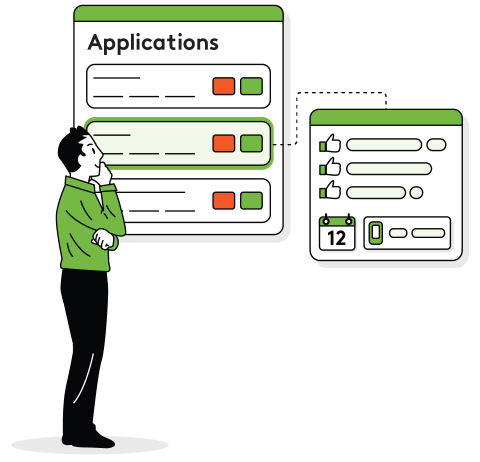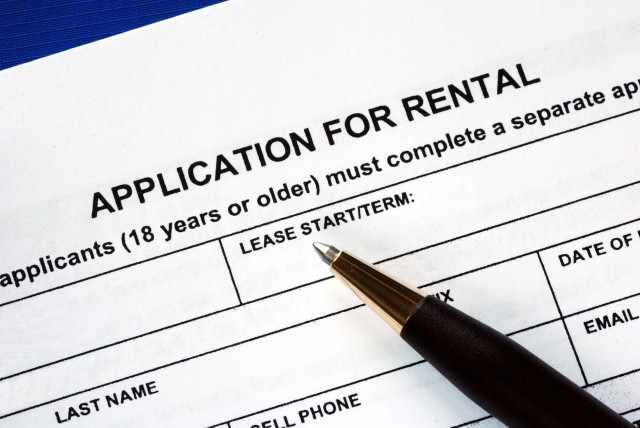
Tenant screening is a vital step in protecting yourself and your property, as it helps you identify qualified applicants. A crucial part of screening is conducting tenant criminal background checks. These checks can show you an applicant’s criminal history so you can make an informed decision.
Rental Tools on Apartments.com offers an easy way to conduct tenant screening and background checks. Here, you can screen tenants based on data found in reports, such as evictions, criminal history, and credit history. Knowing applicants' criminal history helps you make an educated choice on who to lease to. Learn all about criminal background checks for tenants on Apartments.com, including the process, turnaround times, and the information provided in the report.
Key Takeaways
- A criminal background check is a reporting process that searches for an individual’s criminal history or record and returns detailed information such as offense type, classification (infraction, misdemeanor, felony), and court dispositions.
- Conducting criminal background checks helps landlords identify potential safety risks and make informed, data-driven leasing decisions.
- While landlords can assess applicants’ criminal history, they must follow Fair Housing Act guidelines — including avoiding blanket bans and only denying applicants when a conviction poses a legitimate risk.
What Is a Criminal Background Check?
A criminal background check is a reporting process that searches if an individual has a criminal history or record. This data can help you form insights when screening applications received. While criminal history reports are informative when screening an applicant, these don’t always provide a holistic story. The best way to understand the reported data is to ask the tenant for their perspective on it.
Whether you are conducting tenant screening or asking the applicant questions, make sure you adhere to any related laws. Just like you have a responsibility to keep your property safe, you also have a duty to adhere to the proper guidelines when it comes to criminal background checks and tenant screening.
Why Do Landlords Conduct Criminal Background Checks?
The purpose of a criminal background check is to assess risk. By not conducting a check, you open yourself up to a range of hazards. Knowing is the first step for making an informed decision about your applicant by identifying red flags, like a history of vandalism or repeated offenses. Criminal background checks from applicants are beneficial because you can leverage data to pick the applicant that is the best fit.
How Do Criminal Background Checks Work on Apartments.com?
Apartments.com utilizes TransUnion ShareAble for Rentals Criminal Background Screening powered by Asurint to gather accurate and thorough information about tenants in 38 states. In most locations, you will receive screening reports within a short period of time with each application received. If there are no search hits, 90 percent of searches are completed within one hour; if there are potentially reportable hits, 90 percent are done within two days.
Criminal history is gathered by a National Expanded Search by Asurint, which Asurint says uses “Asurint’s national criminal database to find records for locations outside of the applicant’s address history.” It searches national, state, and county databases, including Most Wanted Databases and National Sex Offender Public Registry, for criminal and public records.
During a criminal background check, thorough searches are performed at the national, state, and county levels. Only the states of an applicant's most recent addresses are searched. If a state and county are included in the search coverage, records from those areas will be searched.
State coverage refers to the states in which criminal history searches can be conducted, so states outside of this coverage are excluded from the process. No matter where you are, you can utilize criminal background checks on Apartments.com.
What Shows Up on an Apartments.com Criminal Report?
Criminal reports often contain a lot of information to digest, which can feel overwhelming. Knowing the key areas to focus on can help you better understand and interpret the report. Ultimately, you will come out with a more in-depth knowledge of your tenant that you can use to make a decision.
The critical information to look at is:
- Identifying details: important information such as the defendant's name, date of birth (DOB), social security number (SSN), and gender.
- Court name and court county: the court name and county where the case was heard.
- File date: the date when the case was filed in court.
- Offense: what crime they committed; it could be anything from burglary to arson.
- Level: the crime classification; the most common categories (from least severe to most) are infraction, misdemeanor, and felony.
- Disposition: the outcome of a case, usually “guilty” or “not guilty.”
- Disposition date: the date the court case was decided/resolved.
- Sanctions: penalties/restrictive measures on individuals related to the List of Excluded Individuals/Entities (LEIE), the Office of Inspector General, and the Foreign Sanctioned Evaders – OFAC.
If no criminal history is found, then it will be listed under the “no reportable records” search.
Can You Deny a Tenant Based on Criminal History?
Landlords are prohibited from rejecting a tenant because of criminal history per the Fair Housing Act. This means you cannot deny anyone just because they were arrested or have a criminal record. Applicants can dispute any data found on their reports with TransUnion ShareAble for Rentals Criminal Background Screening powered by Asurint.
However, if you feel that certain criminal convictions put your property or other renters at risk, you can have policies to protect your community and find a better fit. Check with a real estate attorney in your state before implementing any practices. When creating policies related to criminal background checks for tenants, the NAR suggests these guidelines:
- Have a written criminal history policy.
- Apply criminal record policies consistently.
- Do not ask or consider arrests without convictions.
- Avoid blanket bans on applicants with a criminal conviction.
- Only deny those with convictions that do have a tangible risk to tenant safety or property
- Document housing decisions.
- Be familiar with local and state laws
Also, be aware that certain states and cities have additional regulations surrounding background checks and the use of criminal history. An example of this is that the criminal screening report’s content must be shared with an applicant before the landlord makes a final decision.
Rely on Apartments.com for All Your Tenant Screening Needs
Tenant screening on Apartments.com is the best way to find the perfect fit for your rental. You’ll get in-depth reports on credit, criminal history, and evictions to make a well-thought-out decision. Apartments.com continuously makes updates with its providers and state laws to maintain compliance, so you never have to worry. Once a tenant applies, you will get their application and screening reports in no time. Screen tenants now on Apartments.com to find the right renter with ease.
This article is for informational purposes only and should not be considered legal advice. For specific legal concerns or questions, it is recommended to consult a qualified lawyer or professional. Always seek guidance from a professional to ensure accurate and appropriate actions are taken based on your unique situation.
FAQ
What shows up on a tenant screening report?
On Apartments.com, you will get back a report containing information about evictions, criminal history, and credit history. You can find all you want to know about potential applicants through tenant screening on Apartments.com. It is also free — all costs are paid by the applicant. Applicants will get a copy of the screening report, too.
How much does tenant screening on Apartmens.com cost?
It is free for landlords to use as applicants pay the cost of screening. For them, it is $29.00 + tax for an application and tenant screening reports. If an applicant is applying to multiple properties on Apartments.com, they can share that same applicant and report for 30 days and up to 10 participating landlords.
Can landlords use Apartments.com to run other types of background checks in addition to criminal checks?
Yes, Apartments.com offers comprehensive tenant screening tools that provide credit checks, eviction history, and rental history. You will get all the information you want about applicants, from employment history to payment history of credit accounts











